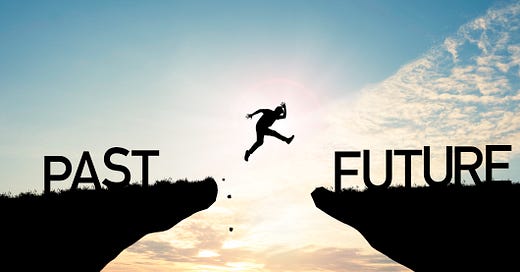By Michael Golden
The call came in around 2am from a dear friend who was in a very dark place. I know that place. And she knows that I know that place.
As luck would have it, I was wide awake when my cell lit up. Speaking over FaceTime, I could feel her pain. Seeing her tears wrenched me, yet I was so glad that she had called.
The first thing I told my friend was the obvious stuff: How utterly amazing a person she is and how the negative crap that other people think carry zero importance.
Both of those things are true, of course. But when you feel like you’re drowning and can’t see the surface above, the source of the pain can easily exceed that which there are logical answers to.
My friend said that she wasn’t considering doing anything drastic. And I believed her. But I knew that like me, a passive form of that thought had crossed her mind before. By “passive,” I mean not serious. But to be clear, every year there are many millions of Americans who do contemplate this option seriously. It is not rare. And more than 700,000 actually follow through.
After I listened more, I finally told my friend the thing I was most confident would make a difference: The pain is temporal; it is not permanent. It’s a feeling. It happens, and you just have to ride it out. Try not to resist it, just acknowledge it, and then let it flow through you. It may take a while, and that’s where the waiting comes in.
In the meantime, I told her to keep going through the motions of whatever was next on her calendar, as best she could. I told her to make sure she was around people — and to reach out to the ones she loves. My friend pretty much knew all of this. She did, after all, make the active decision to reach out to me in that moment of true need. Sometimes, we just need to hear these things again from the folks who care about us most. It is the most natural thing in the world.
The disclaimer I include whenever I write about this subject is that I’m the furthest thing from a professional when it comes to mental health. I have neither training nor education.
What I do have carry is a mental documentary made up of my own memories — that I can draw upon and share anytime. And on occasion, I still rely on them myself. When a gloomy tide rolls in and starts pulling me down, I keep in mind that this has happened before. No matter what the reason for some new spell of darkness, I try to remember that I have the power to let it wash through me; that it’s not that big a deal. Doing this takes patience — a quality I do not naturally possess. Yet I know it is still the best possible course.
Life can be exhilarating. It can also really hurt sometimes. For very real reasons. When it does, no matter what’s driving the emotion, it can help to just let the clock tick. Every new minute is different from the last. And the same goes for the next day and the next week. A pendulum never stays in the same place — as long as it’s still oscillating.
The day after my friend called, she felt much better. And she sounded even better than that the next day. Perhaps best of all, she has a new memory of bouncing back to keep her fortified — if and when a spiral grabs her again.
As the author Emery Lord once wrote:
“My dark days made me strong. Or maybe I already was strong, and they made me prove it.





